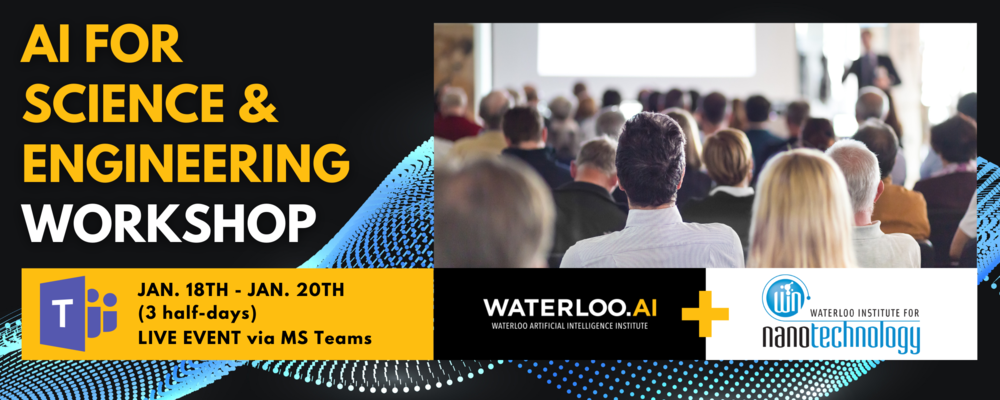Tuesday, January 18, 2022 8:45 am
-
Thursday, January 20, 2022 2:30 pm
EST (GMT -05:00)

Waterloo.AI and Waterloo Institute for Nanotechnology (WIN) are co-hosting an “AI for Science & Engineering Workshop” with over 20 speakers sharing highlights on how they are using AI to generate new insights for potential breakthroughs. The talks will range from new materials discovery at micro and nano-scale, unconventional computing and quantum computers to applications for environment, water, biosensors and biomedical. The event will be three half-days with all the sessions recorded and shared thereafter on Waterloo.AI and WIN websites.
DATES
&
TIMES:
Day
1:
Tuesday, January
18th
| 8:45
AM -
12:40
PM
Day
2: Wednesday,
January
19th
| 9:00
AM
-
12:00
PM
Day
3:
Thursday,
January
20th
| 10:00
AM
-
2:30
PM